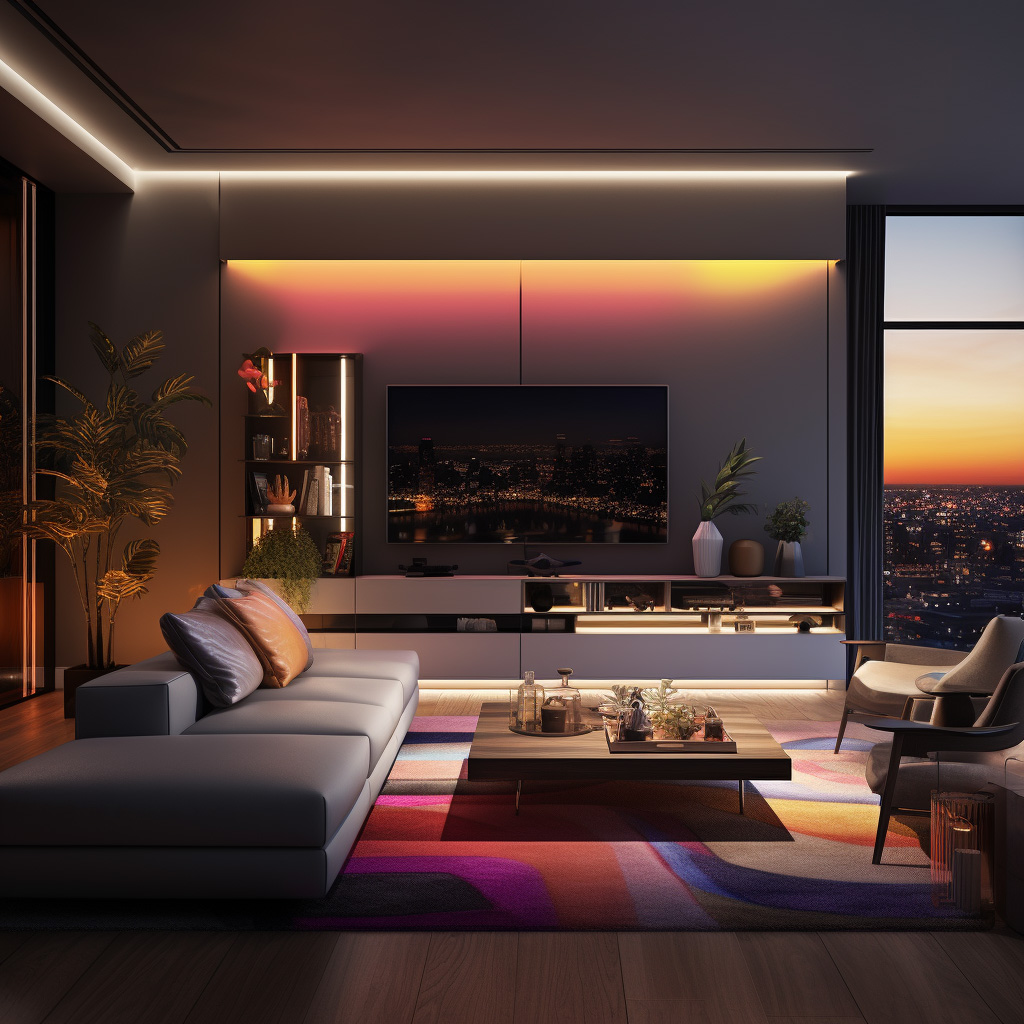If you’re seeking a way to enhance your home with comfort, convenience, and a touch of excitement, look no further than Philips Hue. This smart lighting solution allows you to effortlessly control and personalize your lights using your smartphone, voice assistant, or remote control. Unlike ordinary smart bulbs, Philips Hue comprises a comprehensive smart lighting system, featuring an array of smart bulbs, lamps, strips, and accessories capable of producing millions of colors and shades of white. To connect your lights to the internet and other smart devices, you can utilize a Philips Hue Bridge or a voice assistant hub, such as Google Home, Amazon Echo, or Apple HomePod. Now, let’s delve into the advantages and disadvantages of adopting Philips Hue.
Advantages of Philips Hue
- Convenience: With Philips Hue, you have the power to control your lights from anywhere in the world using your voice or smartphone. Furthermore, you can create schedules and routines to automate your lights, ensuring they turn on or off at specific times or events.
- Ambiance: Transform your living space by generating various scenes and moods to suit different occasions, be it relaxation, reading, or a lively party. By syncing your lights with music, movies, games, or other media, you can elevate your entertainment experience to new heights.
- Security: Philips Hue empowers you to enhance your home security effortlessly. Create the illusion of occupancy by randomly turning your lights on and off while you’re away. You can also receive alerts through smart cameras or sensors if any motion is detected within your home.
- Wellbeing: Experience improved wellbeing with the assistance of smart lighting that replicates natural light cycles, aiding in a smoother wake-up or sleep routine. Tailor your lighting to support your body and mind by selecting the appropriate color temperature and brightness for different activities.
- Compatibility: Philips Hue stands as one of the most versatile and extensively supported smart lighting brands available. It seamlessly integrates with numerous voice assistants and smart home platforms, including Google Home, Amazon Alexa, Apple HomeKit, Samsung SmartThings, IFTTT, and more. Furthermore, it collaborates effectively with third-party apps and devices, extending its features and integrations.
Drawbacks of Philips Hue
- Cost: Compared to other smart lighting brands, Philips Hue leans towards the pricier end of the spectrum. The requirement of a Philips Hue Bridge or a voice assistant hub adds to the initial investment, and the smart bulbs, lamps, strips, and accessories are generally more expensive than regular LED alternatives.
- Installation: To ensure optimal functionality, Philips Hue necessitates some installation and setup. You’ll need to install the Philips Hue Bridge or the voice assistant hub, connecting it to your Wi-Fi network. Additionally, you must install the Philips Hue app on your smartphone and pair it with your lights. In some cases, you may need to replace existing lamps or fixtures with compatible options.
- Reliability: Philips Hue relies on stable Wi-Fi connectivity and internet access to perform flawlessly. If your Wi-Fi network experiences slowness, instability, or downtime, you may encounter delays, glitches, or a loss of control over your lights. Regular software and firmware updates are also necessary to ensure optimal performance and security.
Comparison with Other Brands
Let’s take a look at some notable competitors and how they stack up against Philips Hue:
IKEA TRÅDFRI: Offering a more budget-friendly alternative, IKEA’s smart lighting range encompasses smart bulbs, lamps, panels, blinds, and accessories that can produce various shades of white. It also integrates with Google Home, Amazon Alexa, and Apple HomeKit. However, it lacks the same breadth of features and integrations as Philips Hue.
Xiaomi Yeelight: Xiaomi’s smart lighting range presents an affordable yet high-quality alternative to Philips Hue. It comprises smart bulbs, lamps, strips, and accessories capable of generating millions of colors and shades of white. Xiaomi Yeelight integrates with Google Home, Amazon Alexa, and Apple HomeKit. However, it may not offer the same extensive product range or compatibility as Philips Hue, and the quality of the lighting isn’t as accurate nor as good as Philips’.
LIFX: Positioned as a premium alternative, LIFX’s smart lighting range includes smart bulbs, strips, tiles, and beams capable of producing millions of colors and shades of white. It seamlessly integrates with Google Home, Amazon Alexa, Apple HomeKit, Samsung SmartThings, IFTTT, and more. Notably, LIFX does not require a hub or bridge for operation, simplifying the setup process but increasing dependency on Wi-Fi connectivity.
Aqara: Aqara’s Zigbee-based smart lighting range serves as an alternative to Philips Hue. It offers smart bulbs, switches, sensors, and accessories that can create different shades of white and limited colors. Aqara integrates with Google Home, Amazon Alexa, Apple HomeKit, and Samsung SmartThings. However, it requires an Aqara hub or bridge, which adds complexity and cost. What’s good about Aqara is the availability of a wider range of smart home products that can be added into the same app – think air-conditioners, curtains, and sensors.
Conclusion
In summary, Philips Hue stands as an impressive smart lighting solution, allowing you to effortlessly control and customize your lights using your smartphone, voice assistant, or remote control. Its notable benefits encompass convenience, ambiance, security, wellbeing, and compatibility. However, it does come with drawbacks, including cost, installation requirements, and reliance on stable connectivity. Before deciding if Philips Hue is the right fit for your home, carefully weigh its pros and cons. Additionally, explore other brands that offer comparable or complementary smart lighting products, each with its own advantages and disadvantages. Remember, you have the freedom to mix and match products from different brands to achieve greater flexibility and functionality. The choice ultimately rests in your hands!






